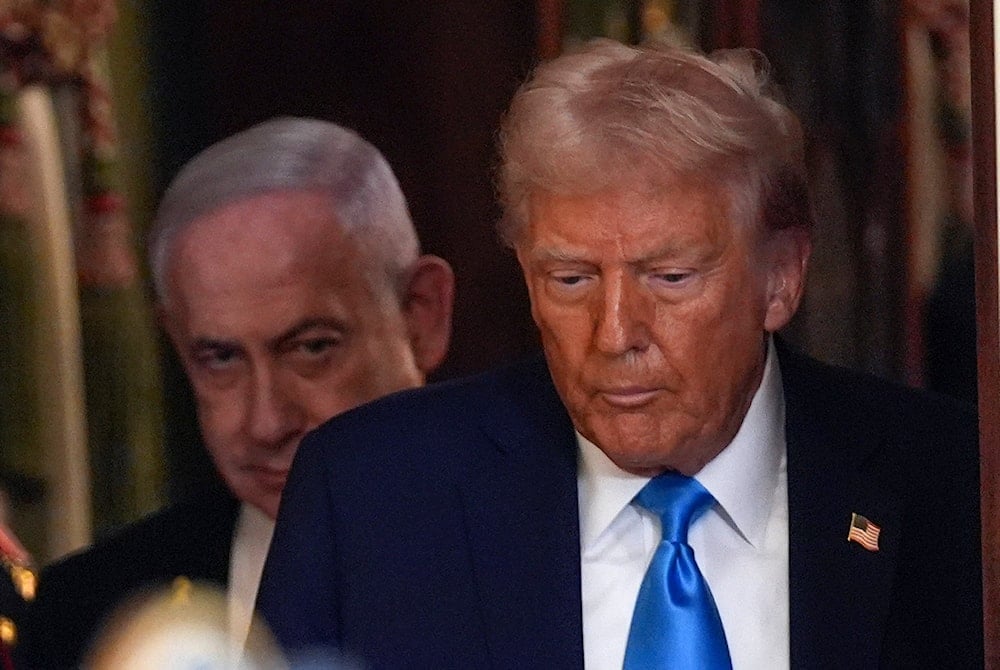Trump-Netanyahu rift grows, US pursues Mideast plans without 'Israel'
Amid growing frustration, Trump is reportedly sidelining Netanyahu over delays in Saudi normalization and Iran policy.
-

President Donald Trump and Israeli Prime Minister Benjamin Netanyahu arrive for a news conference in the East Room of the White House, Tuesday, Feb. 4, 2025, in Washington. (AP)
Sources close to US President Donald Trump indicate he is increasingly disappointed with Israeli Prime Minister Benjamin Netanyahu, following reports that Netanyahu has grown frustrated with the American leader.
This marks a turning point in their relationship as Trump begins to distance his administration from coordination with "Israel" on key Middle East strategies.
US no longer waiting on 'Israel' for regional initiatives
Two senior officials close to Trump, speaking in closed conversations relayed to Israel Hayom, confirmed that the president has chosen to move forward with regional policy decisions without waiting for Netanyahu. The decision reflects growing impatience over what he sees as Netanyahu's reluctance to make critical decisions, particularly on normalization with Saudi Arabia.
Trump's broader objective is to reinforce US influence across the region, especially among Gulf states, and while early normalization frameworks involved cooperation with "Israel", the administration now views Netanyahu’s hesitations, especially his unwillingness to commit publicly to a "horizon for a Palestinian state," as a serious obstacle.
Minister Ron Dermer has been tasked with crafting language that suggests openness to the idea of a future Palestinian state, attempting to navigate political sensitivities and internal opposition within "Israel" without triggering backlash.
Adding to Trump's frustration are reports that Netanyahu and his associates attempted to pressure recently dismissed National Security Advisor Mike Waltz into taking military action against Iran, and although Netanyahu has denied any significant engagement, claiming he only spoke to Waltz once, Trump reportedly remains unconvinced and sees the matter as part of a broader pattern.
'Israel' sidelined in Ansar Allah ceasefire deal
The shift in Washington’s posture has become increasingly evident, especially in the recent US ceasefire deal with Ansar Allah, from which "Israel" was excluded entirely. Officials responsible for US relations were unable to obtain any details from the White House for a full day after the announcement.
This exclusion extends beyond diplomatic circles, as Trump has no plans to visit "Israel" during his upcoming regional tour, which further signals a deliberate move to sideline Netanyahu’s government from current US-led Middle East efforts.
In response, Netanyahu and Defense Minister Israel Katz have both emphasized "Israel’s" readiness to act alone.
Netanyahu reaffirmed that the country relies on its defense capabilities, and Katz stressed that "Israel" must continue depending on its strength to confront regional threats, a principle that has shaped its military posture through previous challenges.
Read more: US prioritizes shipping, not 'Israel', in ceasefire deal with Yemen

 3 Min Read
3 Min Read








